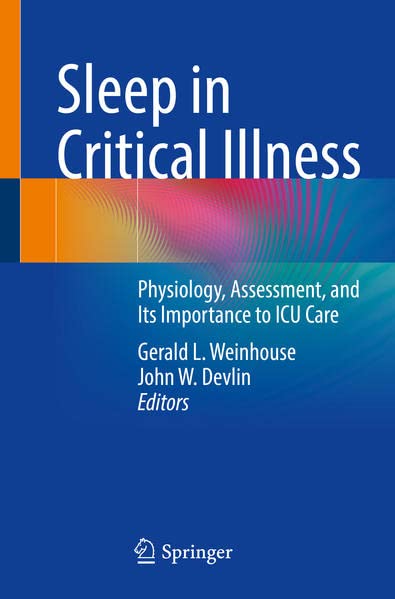

Most ebook files are in PDF format, so you can easily read them using various software such as Foxit Reader or directly on the Google Chrome browser.
Some ebook files are released by publishers in other formats such as .awz, .mobi, .epub, .fb2, etc. You may need to install specific software to read these formats on mobile/PC, such as Calibre.
Please read the tutorial at this link: https://ebookbell.com/faq
We offer FREE conversion to the popular formats you request; however, this may take some time. Therefore, right after payment, please email us, and we will try to provide the service as quickly as possible.
For some exceptional file formats or broken links (if any), please refrain from opening any disputes. Instead, email us first, and we will try to assist within a maximum of 6 hours.
EbookBell Team

5.0
90 reviewsFor decades heavily sedated ICU patients were assumed to be asleep. However, in the past 20 years, physiologic and epidemiologic studies have established sleep is frequently disrupted in the ICU. The inter-relationship between ICU sleep, delirium, and survivorship has come to the forefront of ICU practice. We now routinely aim for lighter sedation, delirium assessment has become standardized, and knowledge regarding the ICU factors leading to Post- Intensive Care Syndrome (PICS) has evolved. The importance of sleep in routine ICU management was codified for the first time in SCCM’s 2018 PADIS guidelines.
This state of the art book summarizes current knowledge regarding sleep during critical illness and recovery and how the risk factors, recognition, and outcomes associated with sleep in the ICU differ from those of healthy adults. Chapters address sleep quality in both the research environment and during routine care, the factors that disrupt sleep architecture and circadian biology in the ICU setting, medications that alter sleep architecture and those that can be used to improve it, the relationship between sleep and sedation and between sleep and delirium, and current strategies that can be used to improve sleep in the vulnerable ICU population. Written by experts in the field, Sleep in Critical Illness is a valuable resource for all members of the ICU interprofessional team including critical care physicians, nurses, physician assistants, pharmacists, and respiratory therapists as well as clinicians who consult in the ICU and post-ICU settings.